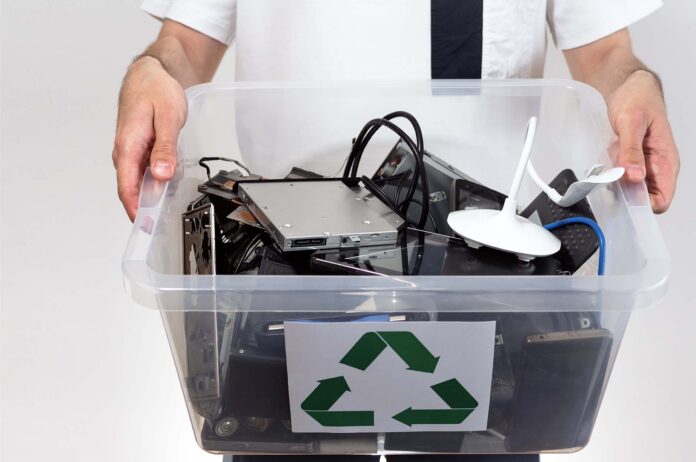
In an era where technology is advancing at breakneck speeds, businesses are accumulating electronic waste (e-waste) at unprecedented rates. From outdated computers to obsolete servers, e-waste represents a significant environmental challenge.
However, it also presents an opportunity for growth-minded businesses. Here’s why e-waste management should be a critical component of your company’s growth strategy.
Environmental Responsibility
Preserving Natural Resources
Numerous recyclable items, including metals like copper, silver, and gold, may be found in e-waste. Businesses may contribute to the preservation of natural resources and lessen the demand for mining by handling e-waste appropriately.
Each tonne of recovered e-waste helps to reduce the production’s environmental impact by preserving raw resources.
Reducing Toxic Pollution

Electronic waste recycling plays a pivotal role in mitigating the harmful effects of e-waste on the environment. E-waste can release toxic substances such as lead and mercury when improperly disposed of.
These toxins can seep into soil and water, posing severe health risks to both humans and wildlife. Responsible e-waste management through recycling ensures these dangerous substances are professionally handled, curtailing environmental contamination and promoting a healthier planet.
Regulatory Compliance and Risk Management
Keeping Up with Legislation
As businesses grow, they must navigate an increasingly complex web of regulations. Many regions have strict legislation governing e-waste disposal. Failure to comply can lead to hefty fines and legal issues.
By implementing robust e-waste management protocols, businesses ensure they meet legal standards, avoid penalties, and maintain their reputations.
Minimizing Data Breach Risks
Discarded electronic devices are treasure troves of confidential information, presenting lucrative targets for data thieves.
E-waste management is crucial for preventing sensitive data from falling into the wrong hands. Properly disposing of electronics includes techniques like data wiping and physical destruction of hard drives, which are essential to thwart unauthorized access to proprietary information.
This not only protects the business from the reputational damage associated with data breaches but also safeguards customer and employee information, maintaining trust and compliance with data protection regulations. It’s a proactive measure in risk management that growing businesses cannot afford to overlook.
Economic Efficiency and Brand Image

Cost Savings
Effective e-waste management can translate into direct cost savings for businesses. By refurbishing and recycling electronic components, companies can recover some of their initial investments.
Furthermore, some recycling programs may offer financial incentives, turning e-waste from a cost center into a potential revenue stream.
Enhancing Brand Reputation

Today’s consumers are increasingly eco-conscious and often make purchasing decisions based on a company’s environmental practices.
Businesses that are proactive in managing their e-waste demonstrate a commitment to sustainability, enhancing their brand image. This can lead to increased customer loyalty and a stronger market position.
Conclusion
In conclusion, e-waste management is not just an environmental imperative; it’s a strategic business practice.
As businesses continue to grow, integrating responsible e-waste disposal and recycling methods can lead to numerous benefits, including compliance with regulations, protection against data breaches, cost savings, and an enhanced brand image.
Therefore, growing businesses need to consider their e-waste strategies as a part of their overall operational plans.








